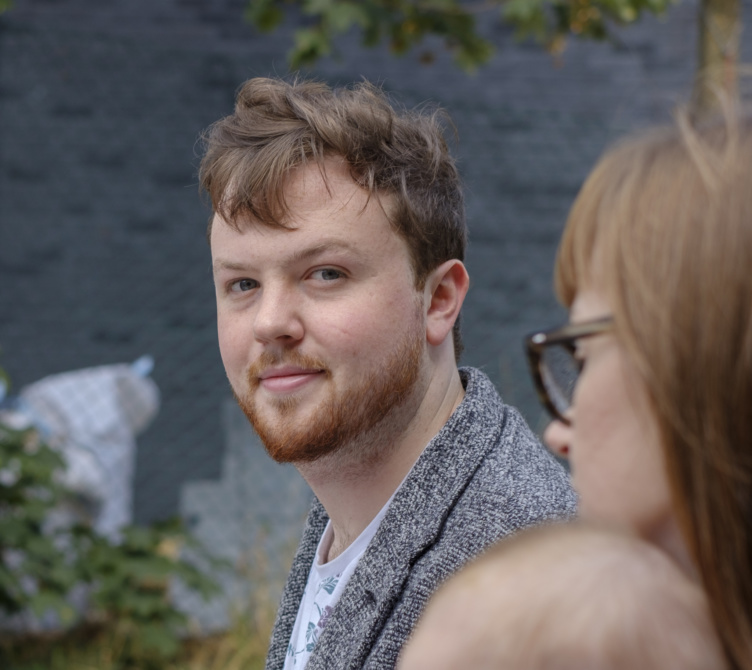
28 September 2018 marked my third BrightonSEO. I’ve been fortunate to see some great talks across the conferences I’ve attended. Some on SERPs, others on video content, and plenty on content marketing.
I’ve had a favourite talk from each of the three BrightonSEOs I’ve attended but this year’s might be the best of the lot.
Titled Contextual optimisation: How to create value led content for your ecosystem, the talk was by John Brasington. John is Head Of Search at Pi Datametrics, along with being a Russell Group philosophy graduate.
His talk gave me so much food for thought that I had to seek him out after the conference. John was kind enough to give me some of his time and run through contextual optimisation with me. Here’s what he had to say…
Could you explain, in brief, what contextual optimisation is
“[Laughs] Contextual optimisation is about approaching all of your SEO optimisation with a view that you should be looking at what content you have already, and what impact it will have on your ecosystem when you try to publish something new. So it’s about connecting your content together in a way that’s valuable to search engines.”
So it’s about taking a holistic view, having a living content organism?
“Yeah exactly. It’s not looking at an article just in isolation, it’s the opposite approach to just looking at one piece of content. It’s useful because it’s a better way of writing content, but it’s also a way to keep up with how algorithms have changed.
“The one thing that I didn’t say in my talk is that all of the updates [on search engines] now are about becoming an authority on a subject, and making sure that’s quite clear to Google. So if you’ve got lots of related ideas then you need to connect them.”
To me this seems like a philosophy that enhances SEO generally, branching out from your website and into client work
“Yeah, that’s exactly how I look at it. It’s like a mindset, a philosophy almost. I think it’s kind of sometimes how UX people think as well [that every composite element is part of forming a vibrant whole]. So absolutely, anything you’re doing, even video content on different platforms or social content, this could be applied to.
“I think that any landing pages on an ecommerce website should be looked at and see how they work together – it’s not just a catalogue, they have to be connected.”
You have a background in philosophy. Would it be fair to say that contextual optimisation is your SEO philosophy?
“[Laughs] I suppose it’s definitely a big part of it. With my background I to apply that sort of view to a lot of my work. So anything that kind of turns into a strategy, I try and understand the greater thing.
“I used to be very much a technical focused SEO. So even then I would apply the same ideas. It’s just keeping up with the changes in search engines really. My philosophy regarding this [SEO] changes as everything else does.”
So being fluid would be your philosophy?
“Yeah.”
Which philosopher is most relevant to SEO?
“That is very difficult! I don’t think the philosophers would want to be compared to what we do [laughs]! There’s a lot of philosophy on language that I focus on, that’s what I studied (the philosophy of language).
“I think that’s about trying to understand the real meaning of things. And so you spend a lot of time looking at a sentence, or a series of sentences, trying to understand what they means. And that’s really what an SEO has to do. They look at the keywords and turn it into a user journey and optimised content.
“In the philosophy of language world my favourite philosopher is Wittgenstein [Ludwig, author of Tractatus Logico-Philosophicus]. I don’t think that he and what he did can be compared to SEO, but I see the similarities. He [Wittgenstein] called philosophy a game and often SEO is likened to a game as well.”
Having studied philosophy, what led you to a career in SEO?
“I always wanted to work in marketing and advertising because I always found it really interesting. And I suppose it sort of made sense to me. When I was at university I thought I’d be a writer, a copywriter or an ad writer. But I knew a lot about tech (my brother was a web designer).
“And so I went looking for content jobs and there were a lot that said: “it helps if you know about HTML,” or: “it helps if you know about CSS.” And that was how I found it – because I was interested in working in advertising. With a philosophy degree there aren’t that many vocational jobs that are immediately relevant.
“But I do think that it was really valuable degree for this industry and I don’t think it’s fair to be unfairly biased towards someone who has studied this [SEO]. This is because you have to learn to analyse something that is so abstract, and doesn’t have much application and just teaches you the method of analysis.
“And SEO is such a varied industry that there’s no one skill-set that you can pick up, it wouldn’t be very useful to just know one sort of analysis. You have to know a lot of different terms. I think that’s why philosophy has been so useful in this industry, because you have to understand algorithms, and content, and strategies and all of these different things.”
What’s the one piece of advice you’d give to someone considering SEO as a career choice?
“I would say that there is such a premium on an understanding of technical SEO. It’s not often well understood. If you want to differentiate yourself, really quickly, I would spend a lot of time understanding technical SEO.
“Just get your head around things like SEO audits. You don’t even have to have done it. If you just understand the theory behind things like international optimisation, you stand out so much beyond everything else.”
Your talk was my favourite from BrightonSEO. What was your favourite and what did you take away from it?
“I was thinking about this earlier! Of course, quite a lot of people were interested in Rand Fishkin’s talk, as the headline act. I think there was a really good point to be made there. And I think the research around click-through on mobile search is one of the most interesting pieces of research around.
“I think Gregg Gifford too was really good. I’m always really interested in the talks on voice search and I encourage people to go along to them, any kind of talk on voice search, to see what people have uncovered – it’s such new ground and we’re all having to do research into how it’s going to work. So I think the voice search talk was my favourite.
John’s talk gave me a lot to think about and now I have even more to consider. I highly recommend that you check out the slideshow of his talk and learn more about contextual optimisation.
